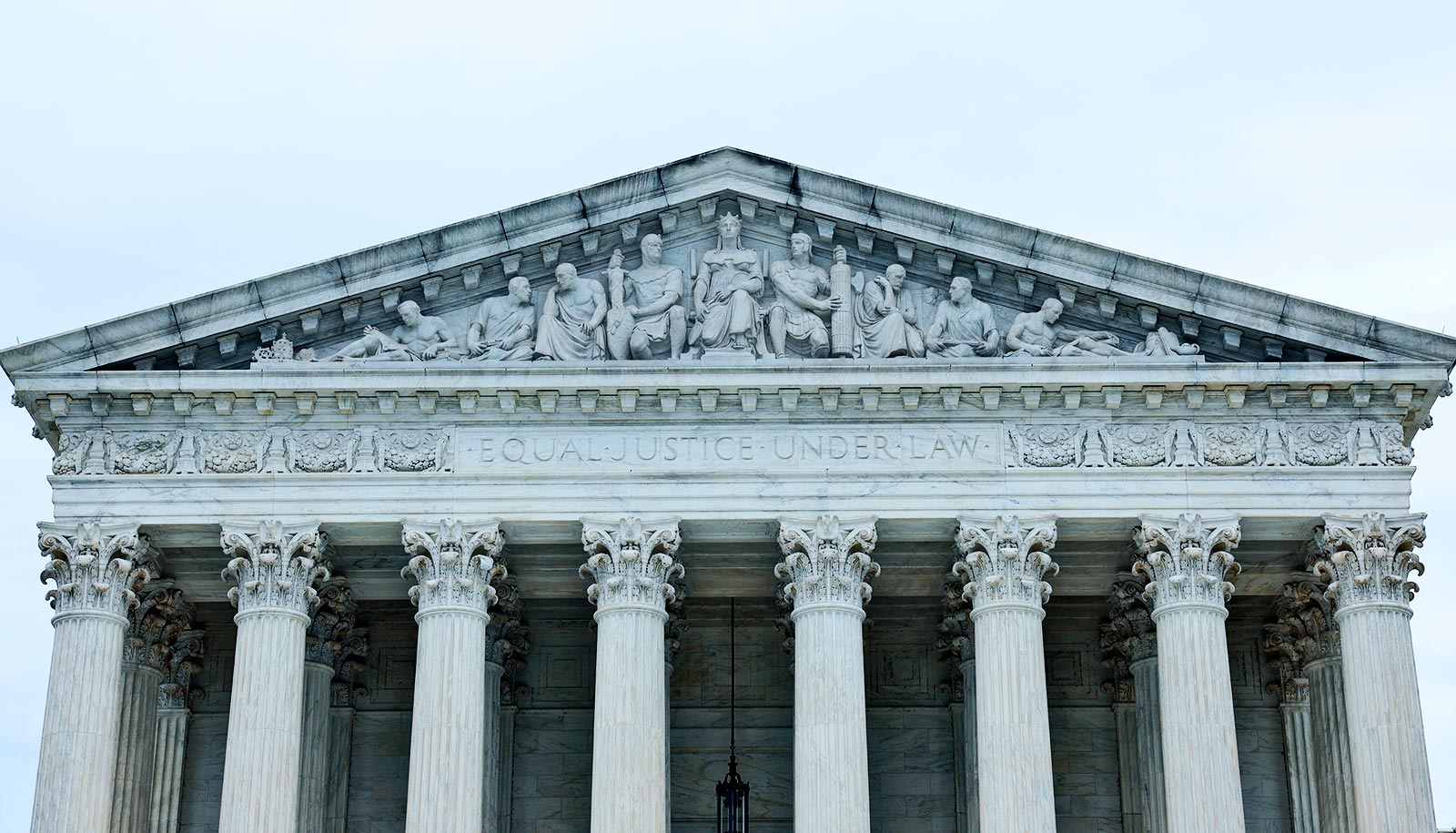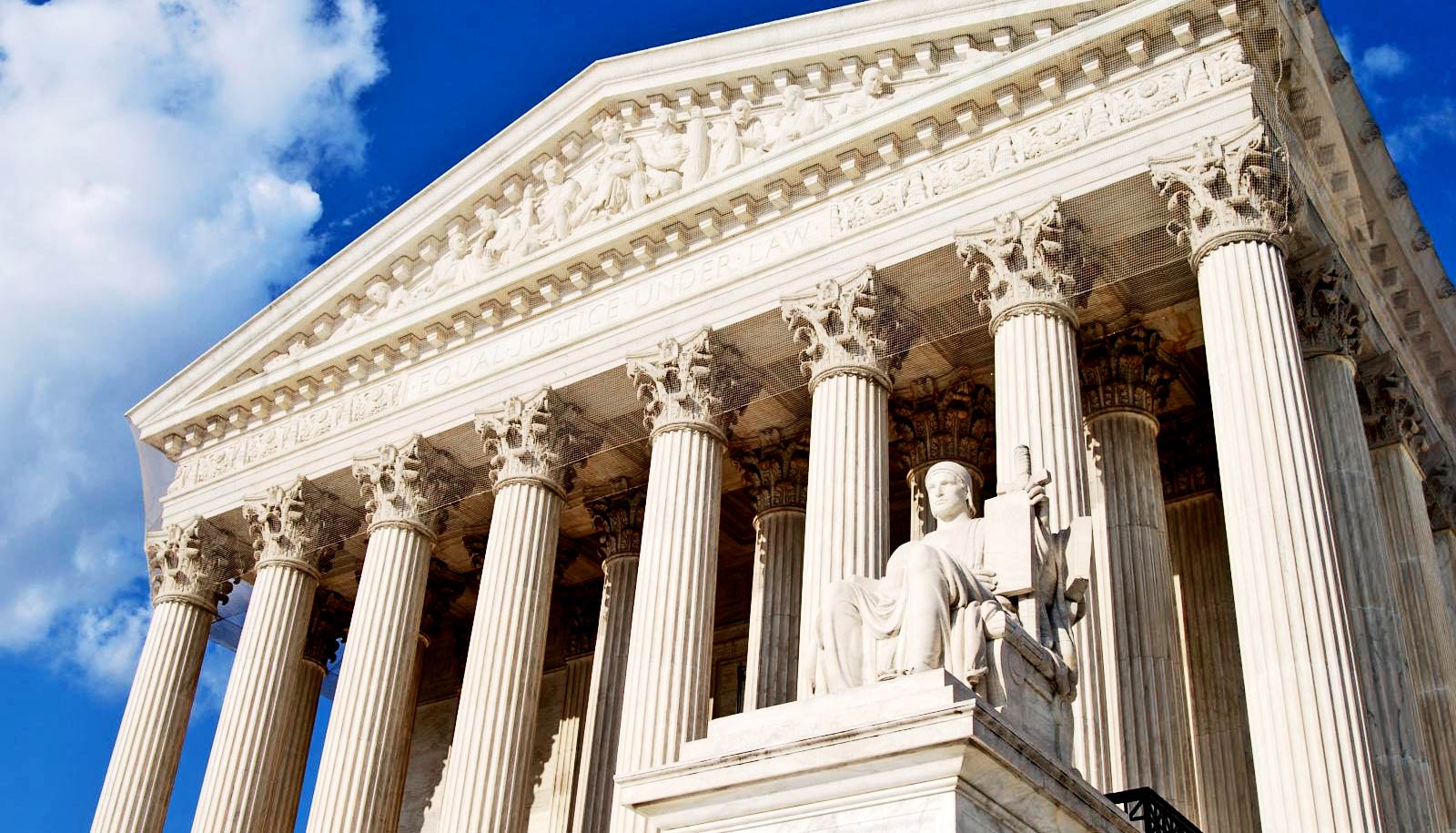Trust that the United States Supreme Court is operating in the best interests of the American people has plummeted amid growing perceptions that the justices are partisans just like any other politicians, according to a new survey.
The survey included questions tracking the court across more than a decade and a half.
The survey, which took place in August, two months after the Supreme Court overturned the 49-year-old Roe v. Wade ruling guaranteeing a constitutional right to abortion, finds that 53% of US adults disapprove of how the court handles its job. The survey also reveals a chasm between the qualities the American people say they value most in judges, such as fairness and impartiality, and the traits they perceive in Supreme Court justices.
In most of the years the policy center has conducted this survey, differences in trust in the court by party affiliation have not been meaningful. That changed in 2022, with a wide gap separating Republicans from Democrats and independents on some attitudes toward the court.
“Whether the perceptions registered in our survey are justified or not, they are worrisome,” says Kathleen Hall Jamieson, director of the Annenberg Public Policy Center. “For the court to play its role in our system of government, it is important that it be perceived to be an independent branch that impartially and fairly bases its decisions on the Constitution, the law, and the facts of the case.”
The Supreme Court questions were part of the Annenberg Constitution Day Civics Survey, a nationally representative survey conducted annually for Constitution Day (September 17) by the Annenberg Public Policy Center (APPC) of the University of Pennsylvania. The 2022 survey of 1,113 US adults was conducted by phone for APPC by independent research company SSRS on August 2-13, 2022. It has a margin of error of ± 3.6 percentage points at the 95% confidence level. The year-to-year changes reported here are statistically significant unless noted otherwise.
The survey finds that:
- Only 39% of US adults approve of how the Supreme Court is handling its job, while 53% disapprove.Over half (53%) have little or no trust in the Supreme Court to operate in the best interests of the American people, up 22 percentage points since 2019.
- Trust is driven by party: 70% of Republicans but only 32% of Democrats have a great deal/fair amount of trust in the court.
- If voting for a local or state judge, 90% of respondents say that having judges who rule based on the Constitution, the law, and the facts of the case is essential/very important.
- But when the public is asked whether Supreme Court justices are more likely to set aside their personal and political beliefs to make rulings based on the Constitution, the law, and the facts, just 40% say they are likely to do so.
- Half of Americans (50%) strongly disapprove of the Supreme Court’s Dobbs ruling that the Constitution does not guarantee a right to abortion.
The findings come as the court begins its fall term amid growing concerns about trust in the court. In a speech last month in Colorado Springs, Colorado, Chief Justice John G. Roberts Jr. defended the integrity of the court. “The court has always decided controversial cases and decisions always have been subject to intense criticism and that is entirely appropriate,” Roberts told judges and lawyers. “You don’t want the political branches telling you what the law is. And you don’t want public opinion to be the guide of what the appropriate decision is.… But simply because people disagree with an opinion is not a basis for criticizing the legitimacy of the court.”
The findings are consistent with data in other recent surveys using similar questions. A Gallup poll in September found 47% of US adults have a great deal or a fair amount of trust in the Supreme Court, while a Marquette Law School Poll found the court’s approval rating at 40%.
Approval and trust
Approval: The APPC survey found that 53% of US adults disapprove of how the Supreme Court is handling its job, more than a third of them disapproving (36%) strongly; 39% approve of the court, 7% of them approving strongly.
Trust: Only 46% of US adults have a great deal/fair amount of trust in the Supreme Court to operate in the best interests of the American people, down from 68% in 2019, when we last asked this question. In APPC surveys since 2005, this is only the second time trust has dropped below 60%.
Other courts: The lack of trust extends to other parts of the judiciary as well. Asked about how much they trust the federal and state courts, 48% of US adults have a great deal/fair amount of trust, while 51% trust the courts not too much/not at all.
Party and trust: In most years when the survey has asked about trust, party differences have not been significant. But in 2022, the survey found that 70% of self-described Republicans have a great deal/fair amount of trust in the Supreme Court, while a great deal/fair amount of trust is held by only 32% of self-described Democrats and 44% of independents and those with other or no party identification (independent/other/none).
Party and approval: Approval is likewise driven by party. While 68% of Republicans approve of how the court is handling its job, just 21% of Democrats approve. And while 76% of Democrats disapprove of the court, just 25% of Republicans disapprove.
Reining in the Supreme Court
In a series of questions, large numbers of Americans feel that the Supreme Court gets “too mixed up in politics” and favor limiting the Supreme Court’s jurisdiction or independence, nearly all on a par with prior years or increasing:
- Justices are like other politicians: Half of US adults (50%, up from 35% in 2019) feel that Supreme Court justices “are just like any other politicians” and “we cannot trust them to decide court cases in a way that is in the best interest of our country.”
- More feel it is too “mixed up in politics”: Nearly 7 in 10 people (69%) feel the court gets too mixed up in politics, an increase of 12 percentage points since 2019.
- Congress should limit the court: Nearly 4 in 10 people (38%) agree that when Congress disagrees with the Supreme Court’s decisions, Congress should pass legislation saying the Supreme Court can no longer rule on that issue or topic, the same as in 2021 and 10 percentage points higher than in 2018.
- More seek to make the court less independent: Over half of those surveyed (56%) agree that the Supreme Court ought to be made less independent so that it listens a lot more to what the people want, up from 49% in 2019.
- More seek to limit the court’s ability to decide some issues: Nearly half (48%) say the right of the Supreme Court to decide certain types of controversial issues should be reduced, up from 36% in 2019.
- Many more feel it has too much power: Over 4 in 10 people (42%) feel that the Supreme Court has too much power, double the number (21%) who thought so in 2019.
- But fewer would abolish the court: A quarter of US adults (26%) think “it might be better to do away with the court altogether” if the court “started making a lot of rulings that most Americans disagreed with”—a decline from last year (34%) but higher than our surveys prior to that.
Strip the Supreme Court of jurisdiction?
On questions of stripping the Supreme Court of jurisdiction or abolishing it altogether, responses by party in this survey have usually not differed significantly. Again, that changed in 2022, when 51% of Democrats but only 21% of Republicans agreed with the statement that Congress should pass legislation to limit the court’s jurisdiction if Congress disagrees with the court’s decisions.
Over 1 in 4 Democrats (27%) and independents/other/no party (29%) agreed that if the court started making a lot of rulings that most Americans disagreed with, it might be better to do away with the court altogether. Just 15% of Republicans agreed with this.
Partisanship, ideology, and the court
Most think the Supreme Court majority was appointed by Republicans: Asked whether a majority of the Supreme Court justices were appointed by Democratic or Republican presidents, 68% say the majority were definitely or probably appointed by Republican presidents and 18% say definitely/probably by Democratic presidents.
More see the court as conservative: About half of those surveyed (49%) say the court is “sometimes liberal, sometimes conservative, depending on the law and facts of the case,” a decrease from nearly two-thirds (63%) in 2019. Over a third (36%) feel the court is generally conservative, up 17 points since 2019, and 8% say generally liberal.
In 2020, Justice Amy Coney Barrett was confirmed to the Supreme Court, the last of three conservative justices added during President Donald Trump’s term, giving conservatives a 6-3 majority on the court.
Most who see an ideological tilt think it’s bad: Among those who feel the court is generally liberal or conservative, the vast majority (75%) think it is bad for our system of government that the court is generally either of those.
What motivates Supreme Court justices
Setting aside personal and political views: Asked to consider the individual Supreme Court justices, less than half of US adults (40%) think the justices “set aside their personal and political views and make rulings based on the Constitution, the law, and the facts of the case”—down 19 points from last year.
Following party leanings: Half of US adults (49%, up from 37% in 2021) say Supreme Court justices nominated by Democratic presidents are more likely to make liberal rulings and justices nominated by Republican presidents are more likely to make conservative rulings, “regardless of the Constitution, the law, and the facts of the case.”
What’s driving this: Responses are driven by party—62% of Democrats, 48% of independents/other/no party, but only 34% of Republicans say that party leanings influence justices more than the Constitution, the law, and the facts of the case. The survey finds a dramatic shift upward for Democrats from 2021 and 2020, when 37% and 38%, respectively, said party leanings had a greater influence.
The survey notes that in some states, state and local judges are elected. Respondents were given a choice of different qualities and asked how important each would be in deciding whether to vote for a candidate for judge. Respondents said the most essential/very important qualities are that a judge:
- Is fair and impartial (91%)
- Will make rulings based on the facts of the case, the law and the Constitution (90%)
- Is highly recommended by the state bar association (45%)
- Shares your political beliefs (34%)
- Shares your religious beliefs (16%).
Those responses did not change significantly from 2019.
Dobbs v. Jackson
Abortion: On June 24, 2022, the Supreme Court ruled in Dobbs v. Jackson Women’s Health Organization that there was no constitutional guarantee of a right to abortion, overturning the Roe v. Wade decision recognizing such a right. The Dobbs ruling is widely unpopular among US adults:
- Nearly 6 in 10 US adults (58%) said they disapprove of that decision on abortion, 50% of whom were strongly disapproving
- Nearly 4 in 10 (39%) approve of the ruling, 27% strongly approving.
Increasing the size of the court: The survey also asked Americans what they thought of proposals to increase the number of justices on the Supreme Court—a proposal that some Democrats and left-leaning critics of the court have said would restore ideological balance to it.
In the survey, a plurality of respondents opposed such a proposal:
- 38% opposed increasing the number of justices on the court, 29% strongly
- 30% favored increasing the number of justices on the court, 18% strongly
Full data for the survey is in the Appendix.
Source: Penn



